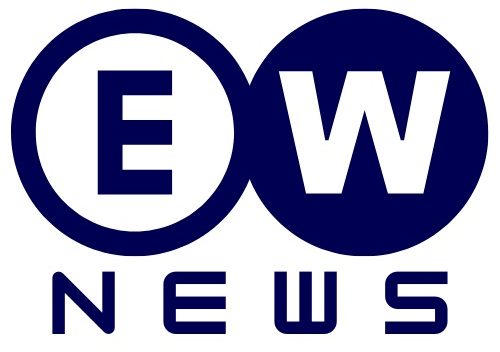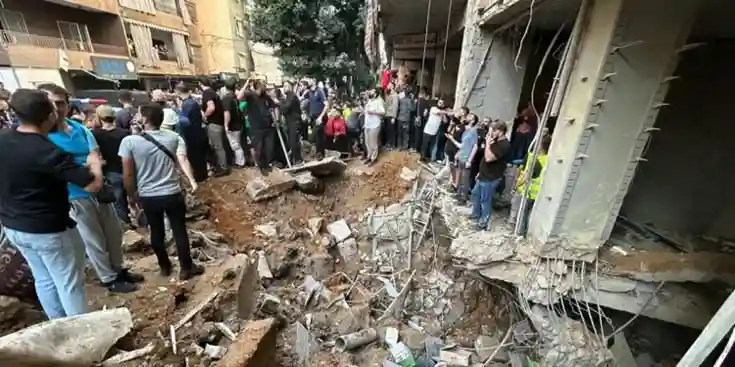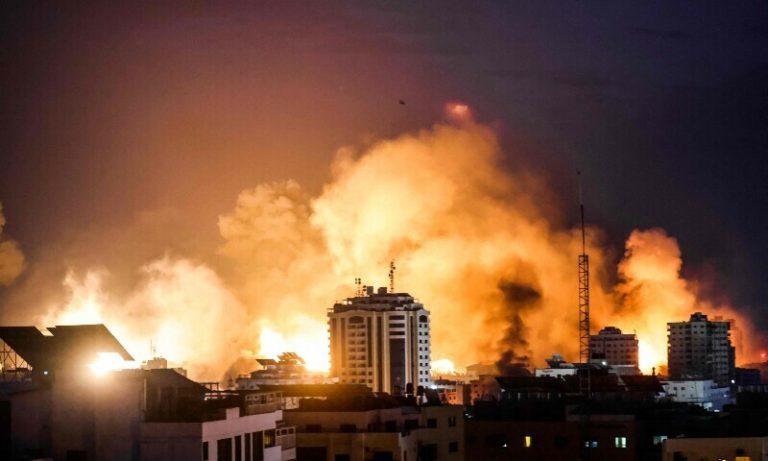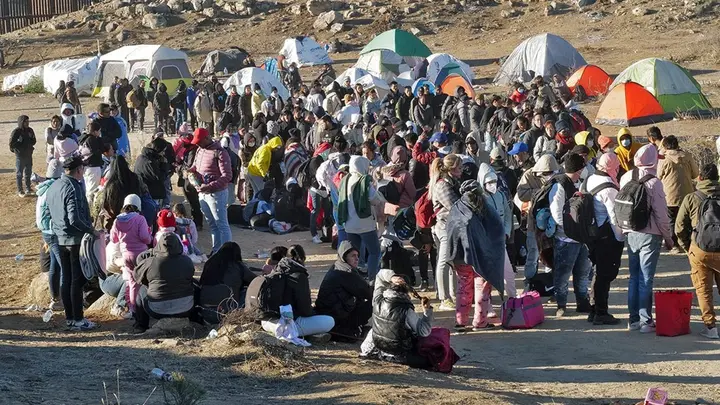Hezbollah was grappling Saturday with the aftermath of an Israeli airstrike that claimed the lives of two of its senior members and several others, stoking fears of an impending full-scale conflict in the Middle East.
As the United Nations urged for diplomatic measures, both sides exchanged further fire on Saturday, while Iran, a key supporter of the group, warned that the region was “on the brink of war.”
The attack occurred after the coordinated detonation of pagers and walkie-talkies owned by Hezbollah members across Lebanon, a marked escalation following months of deadly cross-border skirmishes alongside Israel’s offensive in Gaza. On Saturday, the Israeli military launched a strike on a school in Gaza, claiming it was targeting Hamas militants. However, local officials reported that 22 people, including sheltering children, were killed.
Meanwhile, international authorities investigated the origins of the explosive devices. Hungary’s intelligence services questioned the CEO of a firm linked to the pagers, while a walkie-talkie manufacturer in Japan distanced itself from the detonations. Hezbollah confirmed the deaths of Ibrahim Akil, a key figure in its elite Radwan Force, and Ahmed Wahbi, head of its central training unit, in the Friday airstrike on a densely populated Beirut suburb.
In total, at least 31 people were killed, including three children, with 68 more injured, according to Lebanon’s health minister Firass Abiad. Hezbollah announced that 19 of its fighters were among the dead, raising the death toll of its members to 499 since Hamas launched attacks on October 7. Israel reported that it confirmed the deaths of 16 Hezbollah fighters in the airstrike.
The U.S. had offered a reward of up to $7 million for information on Akil, identifying him as a “principal member” responsible for the 1983 U.S. embassy bombing in Beirut.
Early Saturday, Hezbollah launched artillery shells and rockets into northern Israel, prompting sirens in the area, while the Israeli army targeted Hezbollah sites in southern Lebanon.
During a military parade in Tehran, Iran displayed its military capabilities, including a new self-detonating drone. Speaking at the event, Supreme Leader Ayatollah Ali Khamenei condemned Israel for its “shameless crimes” against children. A senior officer from Iran’s Revolutionary Guard, Mohsen Rezaee, warned that the conflict could spread to Iraq, Syria, or Iran if Israel continued its actions.
The United Nations expressed concern that the situation in the Middle East could deteriorate further. U.N. political affairs chief Rosemary DiCarlo, addressing an emergency Security Council meeting, cautioned that the region could see even greater devastation if diplomacy is not pursued immediately.
Despite shifting focus to the north, Israel’s offensive in Gaza continued. It reported a precise airstrike on Hamas militants operating within a former school in Gaza City. Local officials said the site was used as a shelter by displaced civilians, with 22 people, mostly women and children, killed in the attack.
As Lebanon dealt with the aftermath of the device explosions, international probes spanned from Asia to Europe. Hungary’s government reported that its intelligence services had interviewed the CEO of Budapest-based BAC Consulting, linked to the pagers. Taiwan-based Gold Apollo, whose logo appeared on the pagers, stated they were made by the Hungarian firm. In Japan, walkie-talkie maker Icom denied involvement, noting the lack of holographic stickers on the devices. The company expressed sadness that communication devices meant to ensure safety were used for destructive purposes, regardless of their origin.





